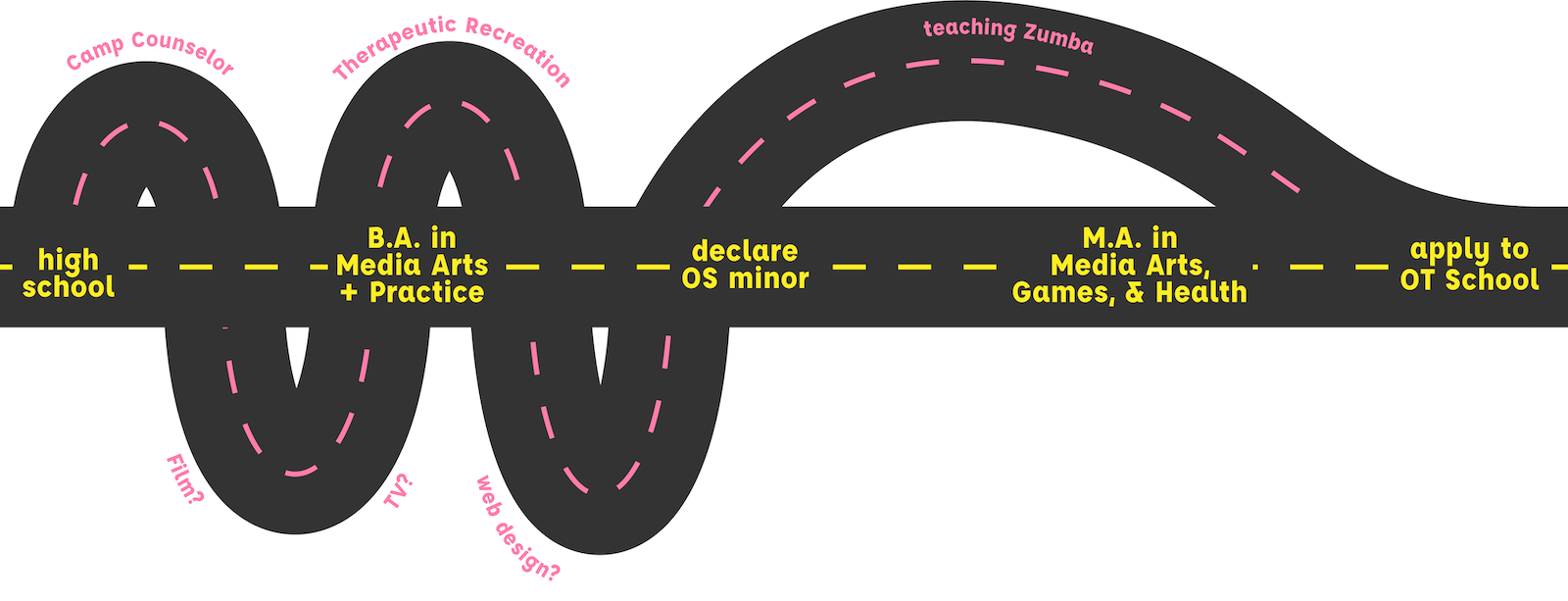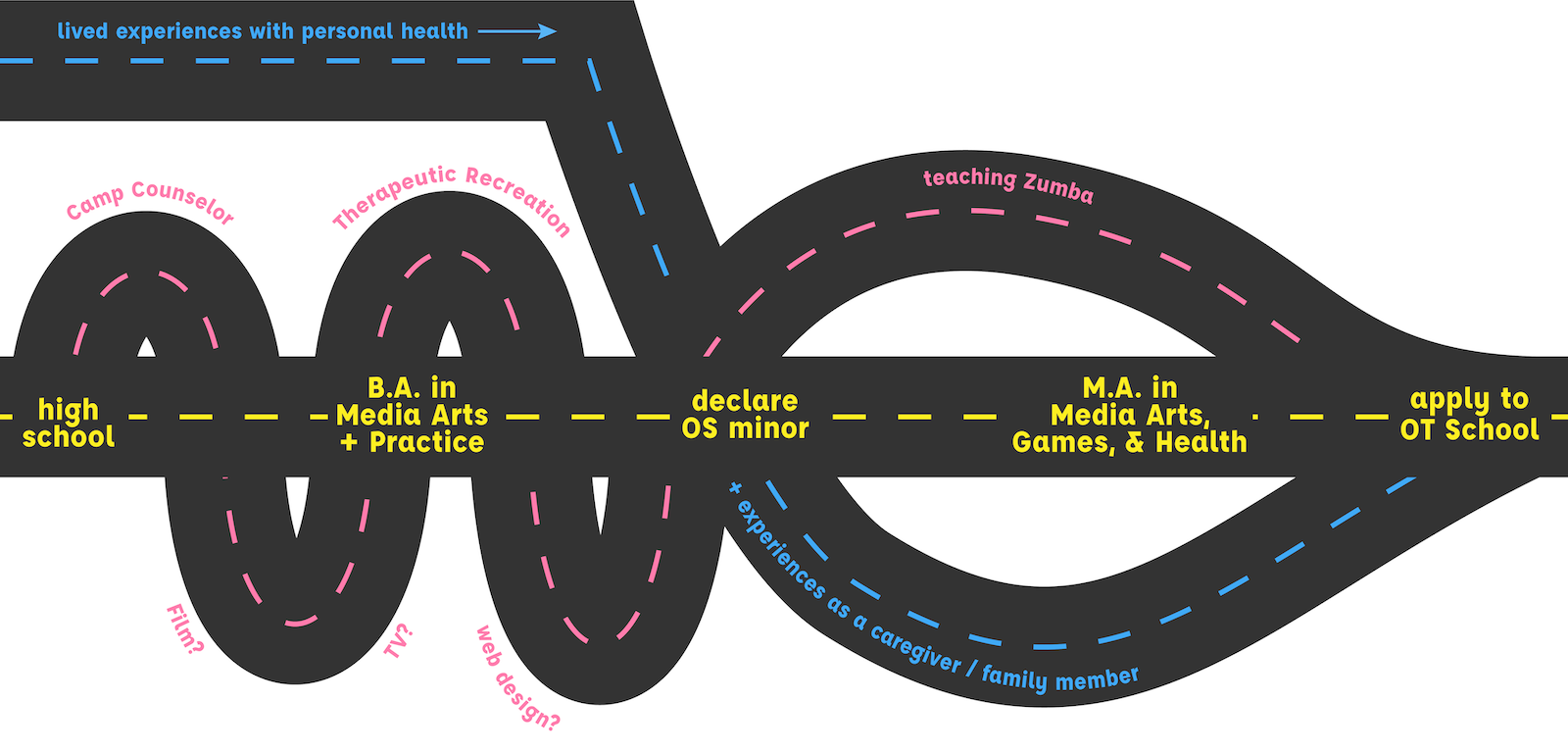Student Blog
Admissions
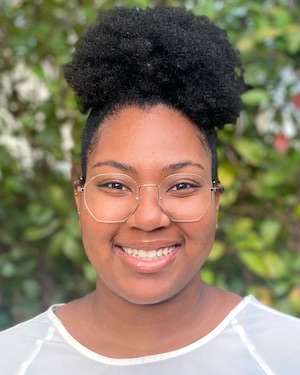
I’m So Happy That I DIDN’T Get It ⟩
November 4, 2021, by Kayla
Admissions Fieldwork
Let’s start off by setting the scene. It’s 2019, I’m in my first semester of the Master’s program and I just got my very first Level I fieldwork placement. I was so excited to be placed at Keck Hospital of USC and even more excited to experience the acute care practice setting. It was absolutely everything I could have hoped for and more, I learned so much from my clinical instructor and had amazing interactions with my patients and before fieldwork came to an end I had made up my mind. I needed to be a Keck OT resident.
Jumping forward to September of 2020, the time had come to apply and interview for the USC Chan Residencies. I was so excited to start taking steps towards something that I wanted for SO long. I did my best to prepare; I edited my personal statement for hours on end, I prepared answers to every possible interview question I could think of, and being selected for that residency was all I could think of. October comes, applications are due and I participate in residency interviews. November comes and residency offer letters are sent out . . . but mine never came.
I take pride in being honest and transparent so I would be completely lying if I say that I wasn’t devastated and felt like everything I had worked for up to that point had been a waste. I would also be lying if I said that it was an easy task to pick myself back up and figure out what was next for me. This was the first time in my academic career that I had to deal with not achieving a goal that I set for myself and it was a hard reality to accept. After a period of allowing myself to feel my emotions authentically and grieving what could have been, I accepted that this was not the end of my journey and that there was a path for me. I just had to go out and find it!
This experience gave me the opportunity to take a step back and be honest with myself and make a conscious effort to work on areas that needed some extra TLC. Although this insight came at the cost of not being selected for the Keck residency, I was on the path to being better equipped for future experiences. I learned how to communicate more efficiently, I learned to have more confidence when interviewing for positions, and most importantly, I learned how to advocate for myself and ask for what I wanted! On top of the opportunities to develop these invaluable professional skills, I had some amazing experiences that would never have happened if things had played out differently. I was able to complete an out-of-area Level II fieldwork over the summer, I have the opportunity to design and tailor my residency experiences to my specific interests, and I have the opportunity to define myself and begin my career in an entirely new city!
So rather than choosing to see this experience as a rejection, I have chosen to reframe it to see it as a redirection; one that I am so thankful for! I am a VERY firm believer that everything happens for a reason and that the things we go through are set in our path to help us become better versions of ourselves. I fell right into where I needed to be and I promise, you will too.
With all of this said, as residency offers begin to roll out and whether or not you receive the outcome you are hoping for I want to remind you to give yourself some grace, give yourself some extra love, and to reassure you that you are more than enough.
⋯
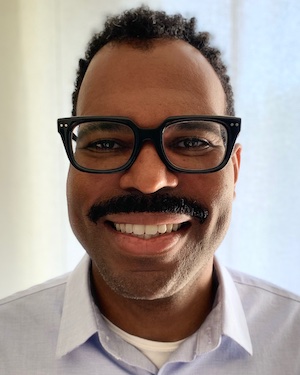
How to go to OT graduate school after being out of school for a long time — Step 2 ⟩
October 5, 2021, by Guy
Admissions
Step 2 — Managing your time and money as you prepare to apply to graduate school
If you read my last blog, you know the classes you need to take and are starting to get some idea of some of the other requirements you need to complete to apply to graduate school. (Oh, if you don’t know about those other requirements like finding volunteer/observation hours with an occupational therapist, or finding people to write your recommendations, I’ll touch on those in my upcoming blogs.) So, now what? You need to come to terms with how this change will impact your time and money. Below is what I did, but you may decide to do something different. Remember to do what works for you. You do you!
Before I even took classes and while I was working full-time, I mapped out a timeline for how long it would take me to complete all the requirements to apply to OT graduate school. I looked at all the schools where I was going to apply and found the one with the earliest deadline and worked backwards to make sure I would complete everything by that deadline. (Side note — I failed to make that deadline — whoops, life happens. However, in retrospect, no big deal because that mistake led me to be here!) Next, I thought about what I would be doing while I was waiting to find out if I got into grad school (usually about 3-4 months of waiting), and I thought about what I would do in between getting into graduate school and going to graduate school making sure to factor in moving. I also made a contingency plan for if I didn’t get into graduate school the first time. (I didn’t make plans for applying more than two times. That was me and you might feel differently.)
In the end it took me approximately 22 months to complete all the requirements to apply to graduate school, and then an additional 6 months until I started school. During the first year, I worked full time and took one class each semester. Financially this was manageable because my classes were very inexpensive, and I still had a good income. In terms of time, it had very little impact on my work week. Once a week I went to class for 3 hours at night right after work. While the class time was manageable, it was an adjustment to my weekends. Now Saturdays and Sundays meant studying or doing assignments. I hadn’t been to school in so long; my studying skills were rusty. Also, getting used to Blackboard and submitting work online was a bit strange. My first written assignment I printed it out and tried to turn it into the teacher — whoops.
During my second year, I got a part-time job, and started taking two classes a semester while also volunteering/observing at least 8 hours per week. Six months or so before leaving full-time work for part-time work my partner and I examined our expenses then and came up with a household budget that could be sustained not only once I went part-time but also when I went to graduate school. We basically came to an agreement about what my piece of the pie had to be while going back to school. While my income would be less, working part-time in the service industry gave me so much more time to study and more importantly gave me the chance to see occupational therapy in action so that I could get a better understanding of the profession. Once I finished the application process, over the next 6 months I continued to volunteer, and I also worked as much as possible to save, save, and save more. Fortunately, I did not have to factor in moving because I moved prior to applying to graduate school where there were schools that I had been considering applying to anyway. (My partner and I decided to move before I even started the application process because we wanted to be closer to family.) However, after talking to many of my classmates who had to move across country once they found out they got in and during a pandemic, I will say this, DO NOT underestimate the amount of time, money, and mental head space that goes into a move. Not that moving is ever easy but moving to a city like Los Angeles and figuring out the housing situation can be very hard to navigate. FYI — Reach out to me or another ambassador if you are from out of town and thinking about going to USC. We can give you some ideas about where students live and how much it costs to get a place in LA.
I never imagined going back to school let alone getting myself together to apply to graduate school because it seemed almost insurmountable. I didn’t have the time or the money. Also going from working adult to student with no money seemed like a far stretch of the imagination. After one year into going back to school, I recall sitting in one of my community college classes after working a night shift at the restaurant and thinking here I am in my forties, I said to myself, “What am I doing?” Well, I’ll tell you what I’m doing, and what you might be starting to do too. Learning and changing! Has it been hard? Yes! Has it been worth it? Absolutely! As we occupational therapy students have learned, don’t forget to break it down into manageable steps, chunk it up! Give yourself the time and space to make the insurmountable doable. Then get it done!
Quick note if you have a partner —
Although I had the full support of my partner during this time, I needed to redouble my efforts to consistently consult with them about what I was thinking about doing. I also needed to actively listen to their ideas and feedback, and to remain steadfast in collaborating with them to do things that would work for the both of us. Despite my best efforts, I didn’t do this so well. Like the time I came back from my first day of community college and said, “I think it would be best if I stopped working and just took classes.” At which point my partner said, “Best for who?” Fortunately, I have a very understanding partner who gives me numerous opportunities to work on things together . . . So, before you make any plans about your time or money as you prepare to apply to occupational therapy graduate school, listen to your partner, make sure you and your partner are on the same page, and above all else remember this is a big change for them too.
⋯

So You Made The Decision . . . Now What? ⟩
September 30, 2021, by Kayla
Admissions Beginnings and Endings
Am I Really Doing This?
I’ve always found a reason to stay pretty close to home; for undergrad I only strayed about 45 minutes down the 210 (including the time added on by traffic) and then I thought I was really stepping out on my own when I moved to LA for grad school at USC. So with that background information, you can imagine the shock that my family and friends felt when I said the words, “I’m moving to Chicago.” I had a hard time wrapping my head around the reality of the decision I had just made as well. Truth be told, I was in denial for a while, but after the denial came acceptance . . . then came stress.
Feeling All The Feels
Stress. It doesn’t discriminate between positive and negative things, it just happens. So while I was excited that it was almost time to actually set off to Chicago, my mind was constantly racing thinking about all of the things that I still needed to plan/organize/do.
Anxiety. It can happen even if we can rationally think through our problems, sometimes that alone just isn’t enough. The OTD program follows a traditional schedule, beginning in late August; I was not set to start the clinical portion of the program until September 20th! And while I knew that the program is designed to be flexible to these very situations, I was worried that I was somehow falling behind. I had to remind myself that this is MY journey and that comparison is nothing but the thief of joy.
During this phase, I really had to believe that everything would come together, be confident that I was prepared to handle the changes coming my way, and more than anything remember the reasons why I decided to complete the OTD.
Strength in Goodbyes
As the time came closer for me to load up a moving truck and drive across the country, I started reflecting on all of the reasons WHY I stayed so close to home for so long. The two most prominent being my family (including my two nephews that I absolutely adore) and the remarkable group of people I get to call my friends. I made sure to be intentional about spending time with my loved ones (and eating as much delicious California food as possible) before I left. The love and support they poured into me made it so clear that no matter where I went, or how far I was, I would not be going through this year alone.
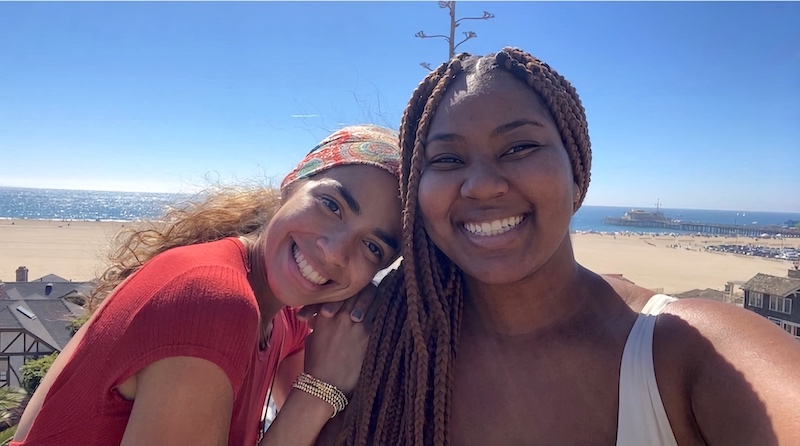
Lunch in Santa Monica with Guarina
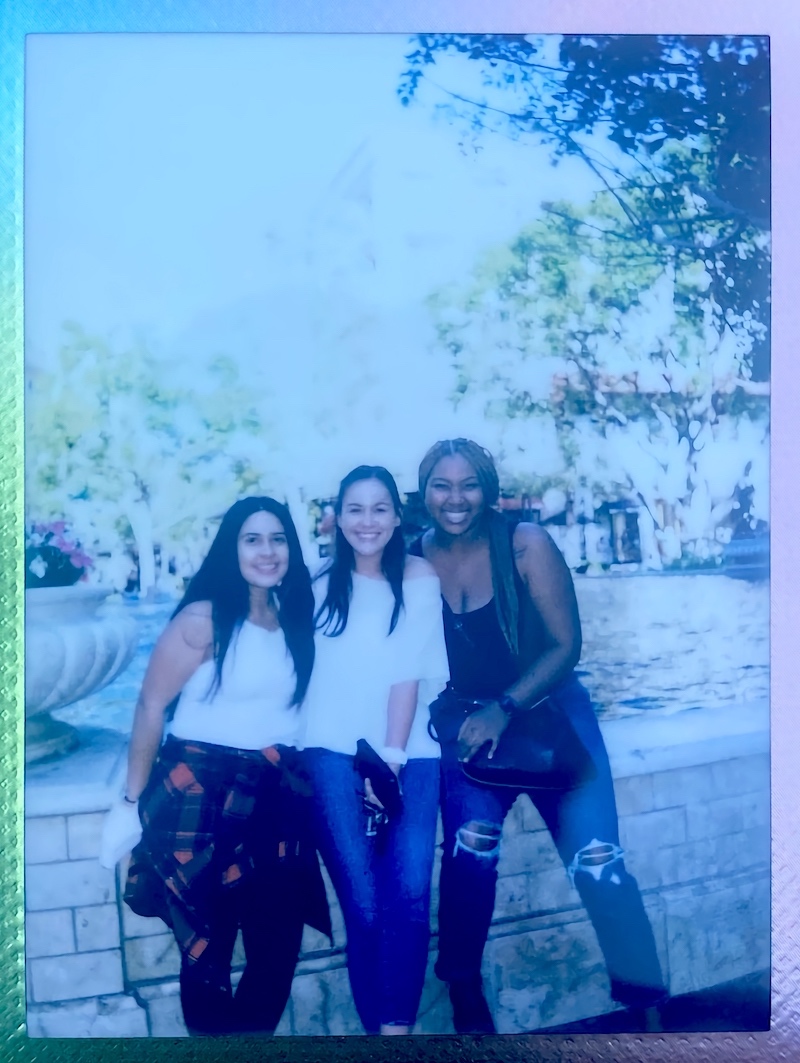
A polaroid with my classmates, Kim and Alex
No Turning Back
2,000 miles, 35 hours, 7 states, 3 days, and 2 AMAZING parents that dropped everything to traverse the country with me in a moving van. As we put more miles behind us and got closer to Illinois everything became real and (despite a quick moment of apprehension somewhere in the middle of Oklahoma) I finally felt ready.
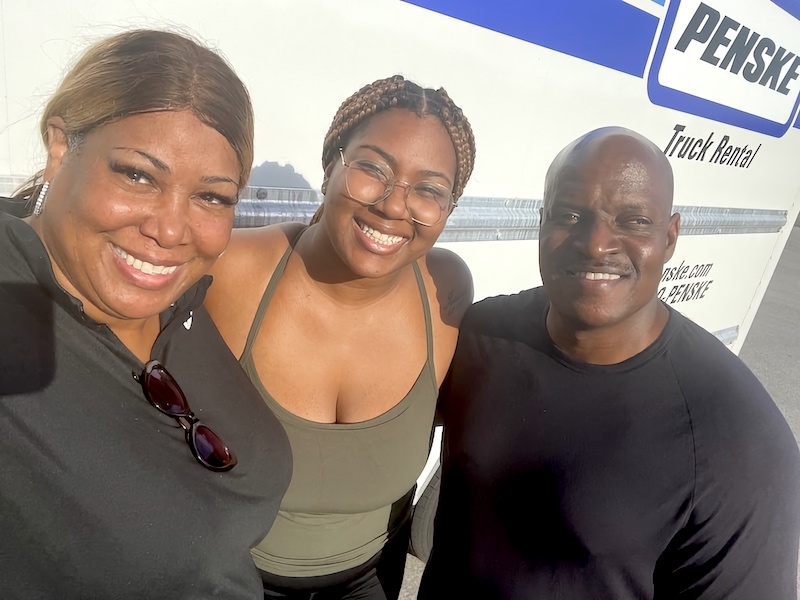
Last day of our road trip!
I wanted to share this with you all because I know that this is the time when you are making some pretty big decisions about your future and it can feel like there are so many unknowns ahead of you. If there is one thing that I have learned thus far in this experience is to not let that stop you from taking a chance on yourself. As deadlines are approaching keep that in mind, because you never know, it might be turn out to be everything you hoped for, good luck!
⋯

How to go to OT grad school after being out of school for a long time — Step 1 ⟩
September 21, 2021, by Guy
Admissions
I’m changing careers to be an OT, help, what do I do?
So, after deciding you want to be an OT, you are daunted by the prospect of making it happen. You say to yourself, “Dude, I want to be an occupational therapist, but I have to go back to school — and it’s been sooo long.” Your brain continues with more self-doubt by saying, “Maybe it’s too late, I won’t be able to afford it? Besides, I was an art history major and studied some science, but that was in 2010 and I don’t remember any of it. I don’t have time to take all of these classes again and then graduate school!” Or you’re thinking, I’m ready, it’s time to make this happen. In either case, you just need some sort of road map of what it will take to go back to school. For me, I had no road map. I knew no occupational therapists who were recent grads, except for that one who became a regular at my bar (see my last blog) but that was after I started the process. So, I was left to internet searches and a few somewhat impersonal informational sessions at a few graduate schools (USC was not one of the ones that were impersonal — Thanks, Dr. Nxumalo and Dr. Bennett!).
If you are like I was (changing careers) and are trying to figure out how to go to OT grad school, I’ll be spending the next few blogs talking about my experience of going back to school. Hopefully reading these blogs will give you some helpful tips on what steps to take. However, please note these steps are what I did, and what worked for me. They are in no way the only way to get yourself to OT graduate school. Find what works for you.
Step 1: Taking pre-requisite classes so you can apply to graduate school
After making the decision that I wanted to be an OT and finding out about needing to go to graduate school to get a license, I went down the rabbit hole investigating what the requirements were to apply to graduate school. (Perhaps a similar search has caused you to land on this page.) Unfortunately, my liberal arts degree from the 90s was not going to be enough. One key thing I kept seeing on graduate school websites was there were a bunch of classes I needed to take, but because I had a liberal arts degree, I did not take most of those classes. Also, for the one or two classes, I did take, because I took them when I was in college more than 7 years ago, I would need to take them again . . . bummer. Most schools require the pre-requisite classes to be taken anywhere from 5 years to 10 years before attending graduate school. USCs requirement is you need to have taken your pre-requisites within 7 years of enrollment.
So, what classes do you need to take to apply to OT graduate school? Most OT grad schools but not require: Anatomy, Physiology, Abnormal Psychology, Developmental Psychology, Anthropology or Sociology, and some sort of medical terminology class and sometimes Statistics. Interestingly, one graduate school I thought about applying to, not USC, required all applicants to have taken Chemistry and Physics. Chemistry and Physics? No offense to chemists and physicists but no thank you!
Find the pre-requisites to apply to the USC Entry-Level OTD with links to possible courses.
Once I knew what pre-requisites most OT graduate schools required, I began to think about where I could take classes for the least amount of money. I just couldn’t afford to spend that much money on classes, and my wife was already a bit wary of this midlife career change and its impact on our finances and time. (How to make the change from a working adult to student and adjust your finances and time to attend graduate school will be coming up in Step 3 and 4.)
For me, the most logical way to complete my pre-requisites was going to community college. (Big shout out to LaGuardia Community College and LACC!) It was affordable, I was also able to complete all the prerequisites for approx. $50 a credit, and it offered me the most flexibility around scheduling so that I could continue to work full-time. I was able to get online classes, and weekend and evening classes. Also, because many community colleges are on a quarter system, I was able to take more classes in a shorter amount of time. In addition, it was a great way to slowly get back into going to school and not feel totally overwhelmed. For me, I hadn’t been to school in a very long time . . . scary. I was able to start slowly by taking one class per semester. I was able to complete all of my pre-requisites in less than two years. However, in the midst of that, I did eventually start working a part-time job which freed up more time to double up on classes and accelerate completion . . . more on that in my next few blogs.
One thing to remember if you decide to go to community college is to complete your pre-requisites. Make sure to register for Anatomy and Physiology classes early. They often fill up very quickly because most if not all health profession graduate schools require applicants to take these classes. They are very much in demand and can be closed on the first day of registration.
You might be saying, as I did, “Why do I have to take all of these classes. It seems like so much time and money! I’ve already got a college degree, isn’t that enough?”
Well kind of but after being in graduate school for a little more than a year now, I understand the reason and value of taking all of these pre-requisite courses. Yes, my college degree and your college degree probably gave you important skills needed to handle the academic rigor of graduate school, however, these pre-requisite courses provided me with an important base of knowledge specific to occupational therapy, and I find that this knowledge comes up almost every day I’m in graduate school. In fact, all of the classes that I have taken in graduate school have at some point referred back to things I learned in each of those pre-requisite courses. Just yesterday something from my developmental psych class came up . . . Albert Bandura and social learning theory anyone? . . . and that DCML pathway I learned about in my physiology class comes up all of the time, who knew how important that would be to so much of what OTs do on a daily basis!
So, hop on it, and get ‘em done!
Good luck with your pre-requisites and welcome back to school if you just started taking your pre-requisites or are currently taking them.
⋯
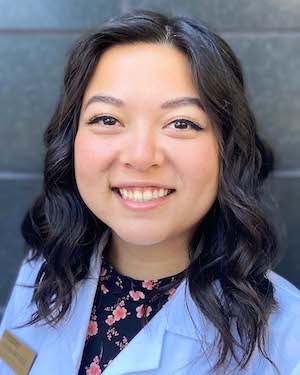
All roads lead to OT ⟩
September 8, 2021, by Alyssa
Admissions What are OS/OT?
The first time I heard the phrase “occupational therapy” I was standing in the freshman dorm room of my future best friend (+ former Chan student ambassador) Noelle; I had just moved in down the hall. She told me about the BS-MA program, and I thought, that’s cool and then did not think about OT again for 2 years.
—
That’s the simple start to my messy story answering the question “Why OT?” I think of it as driving down 3 roads at the same time. To help navigate, I’ve included some illustrations.
Road 1: Academic Life
While media studies and OT may seem unrelated, this road was the most direct.
Freshly graduated from a media-focused vocational high school, I was excited to don my new hat as a student at the USC School of Cinematic Arts. Several of the classes for my Media Arts + Practice major focused on media ethics and the impact of technology on daily life, which built my interest in the use of media outside of the entertainment industry. I had a particular interest in media for healthcare and bounced around between a few different minors to explore this intersection. When I ultimately declared my occupational science (OS) minor, I knew I had found the perfect way to combine my interests in both arts and healthcare. For my undergraduate senior thesis, I prototyped an assistive device designed to help parents practice self regulation strategies with their children.
In the year following, I completed my OT school prerequisites and applications while pursuing my MA in Media Arts, Games, and Health. A natural transition between media and OT studies, I sharpened my research skills and broadened my understanding of technology use/gaming as an occupation.
On this road, I ignited my interests in interdisciplinary research and excitement for OT studies.
Road 2: Work Life
I’ve always been a bit of a workaholic. So, on top of all that school, I spent my extracurricular time trying on a bunch of careers.
I spent my freshman and sophomore years dream hopping from film editor to TV producer to website coder to themed entertainment designer. I worked intense hours at USC’s student TV station and explored my interests further with internships at a news station and a science museum. These were all incredibly interesting experiences, but none of them felt right for me.
In the off season, for 5 summers, I worked as a camp counselor at my local parks system. In my 6th summer, I transitioned into the therapeutic recreation division, providing one-to-one support for children with disabilities on general day camps. These were the first jobs that showed me that going to work doesn’t have to feel like work. The only other job I felt this way about was teaching Zumba at the USC gym.
On this road, I realized the commonality between jobs I truly enjoyed was forming connections and making a direct, meaningful impact on others.
Road 3: Personal Life
In the same semester that I declared my OS minor, I was supporting a loved one through rehabilitation following emergent open heart surgery. As I stayed involved in their recovery, I noted how their re-engagement in meaningful occupations, such as returning to work or playing basketball again, were what gave them and our family a sense of hope among the hardships. It was just like what I learned in my OS minor courses — that holistic healthcare is about more than survival.
I have also had exposure to the patient perspective through my experiences with chronic illness. After years of doctor’s appointments, I’ve seen the kind of provider I want to be — one that emphasizes the practices of listening, patience, empathy, and advocacy.
On this road, I saw the power of meaningful occupations and found my passion for providing individualized care.
—
If I could go back in time to my first conversation with Noelle and tell myself to look into/pursue OT right away, I wouldn’t. The non-traditional path was the way for me.
That being said, it feels nice to keep my eyes on one road now. Can’t wait to see where it goes.
⋯







